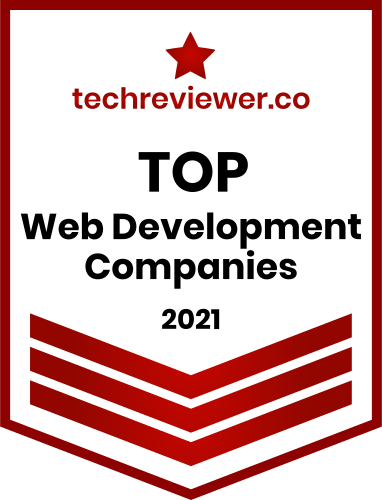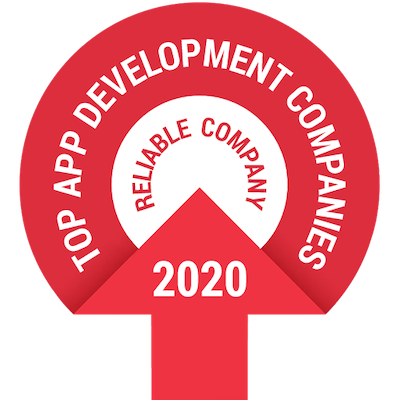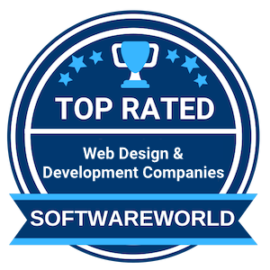
From Engineer to CEO: How to Start a Tech Company - Interview with Taavi Rehemägi, CEO, Dashbird
How to start a tech company?
There are so many aspects to it that your best bet is letting go of the abstract level and asking founders how they managed it.
This is exactly what we did in this interview.
Taavi Rehemägi tells his story about co-founding Dashbird and going from software engineer to CEO. We start with talking about how he came up with the original idea, and we learn how he powered through the early challenges of running a new tech company as a former engineer. The interview is from episode 38 of the Level-up Engineering podcast hosted by Karolina Toth.
This blog post covers:
- The reasons for starting a tech company
- Seeing the future
- Organic growth
- Ambition
- The changing role from engineer to CEO
- Nothing prepares you
- CEOs do everything
- Essential skills for the CEO of a new tech company
- Sales
- Cooperation
- Helping others
- Jack of all trades
- Skills you can take from engineer to CEO
- Making data-based decisions
- People skills
- Thoughts about going back to engineering
- Learning new skills as CEO
- Ask advice from other CEOs
- Networking tips for a new CEO
- Be straightforward
- Network aggressively
- Mistakes along the way from engineer to CEO
- Sales and marketing strategies
- Can't afford any Slack
- Bonus advice
- About Taavi Rehemagi
What made you start a tech company?

We saw the future
It started when we first worked with serverless technology as software engineers at a previous company. Serverless was a new tech trend around 2016. My team built a big application based on it, so we got a peek into the future.
We were ahead of the curve, and we saw that serverless was here to stay with an emerging market and community. We also got an early look at the challenges developers were going to face while using it.
This gave us the idea for a tool to solve these challenges.
The product grew organically
We wanted to see if we could make the tool work for ourselves at first. Once we did that, we put it out there, and it started gaining traction. Developers started using it, and we saw positive feedback and organic interest for the product.
We found a market.
The strategy and the product became more complex along the way, but this is where it started. We went through hundreds of iterations until Dashbird molded into a more mature company.
We had ambition
We've always been entrepreneurial engineers. We've had the ambition to run our own startup, but we weren’t going to do it at any cost. Dashbird gave us the opportunity.
I had no plans to become the CEO; we organically settled into our roles, and the other co-founder put more work into the tech side. I barely acknowledged my shifting role when we started.
How has your role changed going from software engineer to CEO?

The two are completely different.
Nothing prepares you
Nobody's ever qualified to be CEO for the first time. It doesn't matter whether you come from sales, product, or engineering; a CEO’s work includes everything from acquiring customers to marketing strategy. You can’t gain experience in everything by working in any one field.
My transition was gradual, but it still felt sudden. We spent the first six months building the product and figuring out the engineering work. I only switched to a full-time CEO role after that period.
CEOs do everything
The first stop was raising money, which I’d never done before. Then the focus became building the team, creating a product strategy, going to market, sales, keeping contact with customers and public speaking. My current role as CEO is to keep iterating on all these areas:
- Product management
- Hiring
- Fundraising
- Going to market
- Sales
- Customer contact
- Public speaking
A CEO has to be a generalist. I don't get into the development anymore; I trust my engineers to do their job. I’ve been developing an overview of different disciplines instead.
The focus areas are constantly shifting. Early on, a startup is about building your product, then the focus gradually shifts to the business side. You have to deal with people 80% of the time.
What are the essential skills for a CEO of a new tech company?

Sales
Early-stage startups need a CEO to get people excited about the company and to sell the product. Tech companies also need a solid CTO, and a person experienced in taking a product to market.
All these disciplines are necessary.
It's hard to succeed, especially if you lack an evangelical founder. This is the essential role of a CEO.
Cooperation
We have a good chemistry with the CTO and the management team. Both the skills and the interests are complimentary, so we work well together. I like working with the investors and the customers, while my co-founder focuses more on the engineering and product.
Helping others succeed
As CEO, I get to see others succeed around me. The engineering team is building and releasing good code all the time, and the marketing team has its own successes. A CEO has a role and responsibility in everything, and the sense of accomplishment I get out of it is amazing.
Putting together different functions into one company to work like an orchestra is a challenge. It’s amazing to see as individuals and teams form a beautiful unity when you get it right.
Jack of all trades
I became a jack of all trades, but my expertise is specific to the cloud monitoring space. I know how products work, what customers want, and how to go to market. Maybe I could use some of this in different fields as well, but you need to master your own field.
Example:
Early on, you're searching for a niche. Once you find it, you need to figure out what value proposition the users in your niche need.
- What are common problems?
- What are users willing to pay for?
- What problem can your startup solve?
Some products may need too much research and development for a startup. Define your customers, your market, your competitors, your sales channels, and so on. Answering these questions makes up a strategy.
What skills did you take from engineering to your CEO role?

Making data-based decisions
A CEO has to continuously learn just like a software engineer. My background in engineering helped me with the following:
- Iterating different solutions
- Setting expectations toward solutions
- Learning from past activities
- Tracking variables
The first years of a new tech company are about learning what strategy is viable on your market. Your best bet is using data and making logical decisions. Engineers are good at this.
People skills
I’ve always been open, talked to people and had people skills. These qualities are a part of my personality. These don’t make or break a CEO, but they help when you need to convince people to join your startup as funders, customers, or employees.
Have you ever wanted to go back to software engineering after starting your tech company?

I do coding sessions for fun on the weekends, but I don’t work on the Dashbird systems. I have fun playing with side projects and challenges.
The CEO role is challenging and interesting. I meet interesting people and get to do interesting things. While it can be overwhelming, it gets easier over time.
I don’t want to go back to software engineering full time.
I would have gone back in the first 18 months, but as I’m learning what I need to do, I’m enjoying the CEO role more and more.
What did you do to sharpen your skills as CEO of a new tech company?

Ask for advice
The most help has been talking to other founders, especially whose companies are in a similar market but are ahead of our own company in size and maturity. I got to talk to founders of unicorns and public companies in our field, and I learned a lot from them.
They can point out flaws in your thought process and show you a different perspective when you tell them what you're doing. They’ve been through many iterations, so they can shed light to your blind spots.
Companies think and work differently at different stages. Other founders can help you navigate your challenges and also get ready for the next stage.
How do you build your network when going from engineer to CEO?

We started networking from scratch. We got lucky because our early customers gave us credibility to attract investors. These angel investors introduced us to venture capital funds.
Network aggressively
I got the advice early on to ask everyone I go into a meeting with to introduce me to five people. In mere months, my network grew exponentially. People who have been around longer know exactly who are the best people to talk to in any situation.
Be straightforward
Fund managers and angel investors are always busy. Don’t beat around the bush when you’re talking to them. Get to the point, ask what you want, and they may give it to you.
What mistakes did you make while going from software engineer to CEO?

Running an early stage startup isn’t glamorous.
People tend to remember the mistakes the most. I only see my mistakes as I look back on the past three years as a CEO. We’ve had plenty of success, we made ten good decisions for every bad one, but the bad decisions are more memorable.
Sales and marketing strategies
Our biggest early mistakes were in sales and marketing strategies. I had no idea what I was doing. We lost momentum because of this and made strategically wrong decisions.
These weren’t obvious mistakes at the time. I didn’t know enough to prevent them back then. I can see them coming and avoid them with my current experience.
Slack in any area
Dashbird has always been good at software engineering. We knew how to hire engineers and what our customers needed from the start.
Most markets today require your strategy to hit a niche in a unique way. You need to nail every discipline like product strategy, pricing and going to market to escape the death valley of early stage startups and to make it to the next phase. You need to iterate until everything’s close to perfect.
It seems like the markets used to be less competitive 10 years ago. You could get away with inefficiencies in one or two areas back then. Now, you need to keep every aspect of the business in mind until your company grows strong.
The CEO role gets easier as the company gets stronger, and you attract talent to each discipline.
Bonus advice

I encourage everyone to start a company and try themselves as CEO. It’s difficult, and it’s natural to be scared of walking a hard road, but even if it doesn’t pan out, you won’t want to take it back. The life experience and the perspective it gives you is worth it.
If I can start a tech company, anyone can do it.
About Taavi Rehemägi
Taavi Rehemägi started coding at the age of 14, and he started working as a software engineer. He was at different startups working with many different technologies. He co-founded Dashbird in 2018 and has been acting as its CEO since.
He went from writing code to raising venture capital, building a team, launching product, and acquiring customers.
Let's build awesome things together 🚀
At Apex Lab, we're experts in end-to-end digital product development. Our remote-first company operates with a flexible schedule, allowing us to help clients tackle difficult challenges worldwide.
Want us to build your next idea or upgrade your existing product? Our experts cannot wait to work with you. Get in touch with us and let's make this happen. 💡🚀










